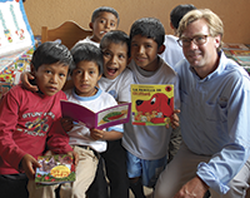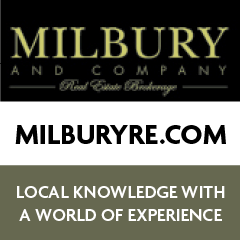Coffee & Philanthropy Jim’s Organic Coffee focuses on quality beans and giving back to the producers9/27/2018  For coffee lovers, there is nothing quite like starting the day with the warmth and aroma of a freshly brewed cup of dark roast — whether you take it black, with a splash of cream and sugar, or over ice with a swirl of mocha; the potent liquid is most satisfying. But from Jim Cannell’s point of view, a quality cup of coffee begins with the relationship between the farmer and the roaster and ends with just the right preparation; a kettle of boiling point water and a drop cone over a single cup.
For the last 20 years, Cannell has not only been enjoying quality coffee, but his career on finding and roasting the perfect beans has also captured his entire being. Originally from New Jersey, Cannell’s journey to roasting coffee beans began on Wall Street, where he headed, (in the mid-80’s) with his sights set on becoming a stock and bond broker. Fresh out of college, the ambitious financial advisor ended up on a coffee trading desk, brokering not just coffee futures, but the physical product being imported into the United States for both large and small regional companies. This was in the day when Folgers and Maxwell House coffee came ground in a can, “before Starbucks and Peet’s [Coffee] …and Green Mountain…put specialty coffee on the map,” Cannell says. During his time on Wall Street, the young broker ran a company that was just starting to get into specialty coffee. He traveled to Seattle, which today is still regarded as the world center for coffee roasting, and the birthplace of American artisanal espresso bars—most notably, the Starbucks Corporation. It was there he immersed himself into the culture of gourmet, quality coffee. He used what he learned to help the company build their portfolio and sell their product to specialty roasters, which began popping up all around the country. It was while traveling around the country and visiting roasters Cannell got the idea, and motivation, to start his own company. An outdoorsman since childhood and believer in the “saving the rainforest” ethos, Cannell narrowed his research to the organic coffee market. “I decided this is what I want to do.” His parents had just bought a second home on the SouthCoast of Massachusetts; he fell in love with the area. In 1992, he moved to the Bay State and opened his first all-organic coffee roasting plant. The choice to be organic was both a philosophical one as well as an opportunity to be different than the other processors. And while he ended up selling his first business in 1996, this action opened the door for the creation of Jim’s Organic Coffee. “To be all organic is the way to produce coffee in harmony with nature,” he says. “This is what I want to be a part of.” The beans for Jim’s Organic Coffee come from 10 different countries, and while he works with importers to bring the beans to Massachusetts, Cannell says he has a direct relationship with the farmers. To guarantee he receives a top product, Cannell has traveled to most of the farms, which do all the work to ensure the beans are organic — meaning they produce under strict conditions with the absence of synthetic pesticides and fertilizers. “It takes a lot of effort to be organic,” he says, “and at least three years of inspections to become certified.” “It’s farming,” he notes, “It’s not just about what you don’t use; it’s what you put in as alternatives. They [famers] develop a rich, topsoil using the cherries [from the beans themselves].” The growers also “shade grow,” meaning they build large canopies of trees that add biodiversity to the farm, provide a better habitat for birds—who then offer pest control, and prevent too much sun shining down on the crops. Cannell works with just one farmer in each of the 10 worldwide locations. “We want to support them and buy year after year,” he says, adding that his company also supports the communities around the farms through service projects like providing teacher programs, science equipment and helping make improvements to local schools. “We want them to continue to provide a quality product and continue to farm organically.” The roasting process is then done at his warehouse in Wareham, Massachusetts by two roasters (plus Jim) who create different varieties from lighter beans with floral, aromatic notes to darker, more bold and smoky roasts like the best-selling Sweet Love Blend, a combination of dark roast with an even darker roast for a very full-bodied aroma. The beans are then packaged in one-way valve bags to make sure oxygen doesn’t get inside the packaging during shipping. “It locks in the fresh roasted taste, so the coffee doesn’t begin to stale until the bag is opened.” He says. “Quality is the one thing we care most about. I want to be known as a high-quality organic roaster.” His 12,000 square foot Wareham facility hosts the company’s full operations from roasting and packaging to shipping and storage, and today produces about 75,000 pounds of coffee a month. Jim’s Organic Coffee is sold strictly wholesale and is available through its website and in retail stores across the country.
0 Comments
Leave a Reply. |
Click the cover above to receive a free digital subscription
Archives
June 2022
Categories
|



